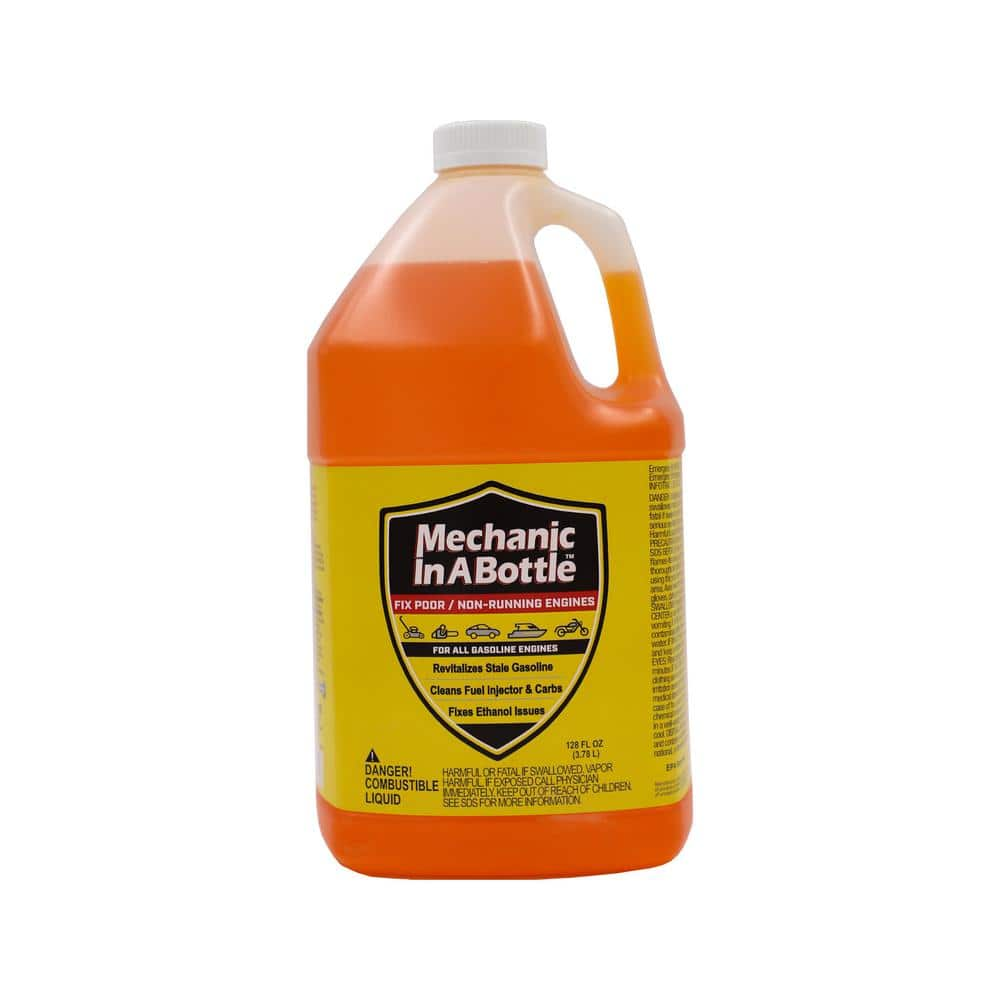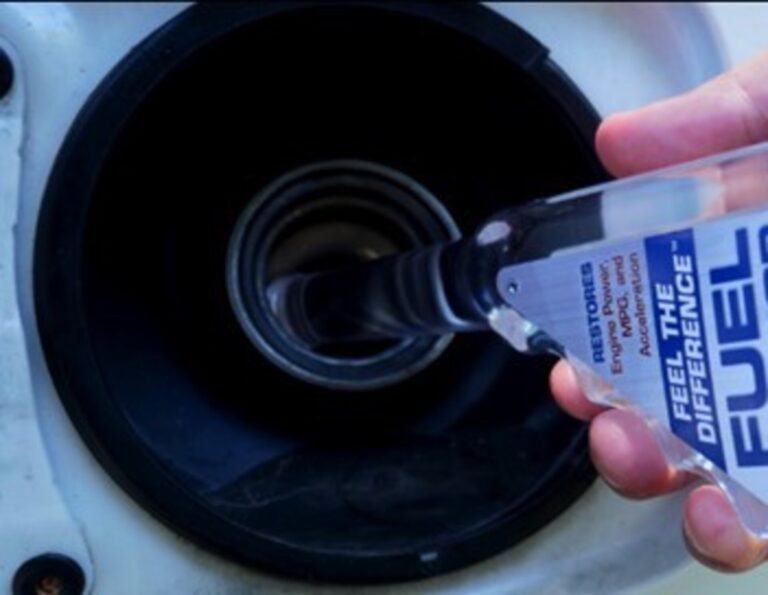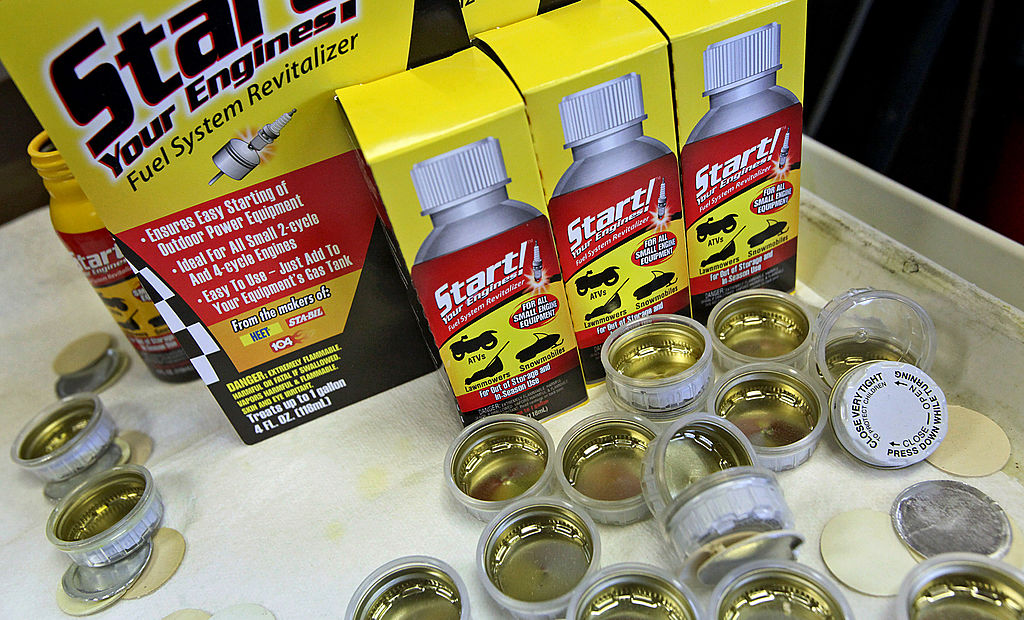
Mechanic in a Bottle 1 Gal. Synthetic Fuel Additive 2128 The Home Depot
For classic cars, the advantages of fuel additives that combat valve seat recession are a priority for cars with iron cylinder-heads, especially. While the absence of lead in today's petrol blends is not an issue for modern vehicles, last year's increase in ethanol levels in petrol (up to 10% for 95RON) creates several complications.

Best Fuel Additives of 2017 Check out the Buying Guide
Created with a commitment to preserving the beauty and legacy of classic cars, SUSTAIN Classic is carefully engineered to meet the unique needs of vintage engine systems. With a balanced blend of advanced additives and sustainable biomass, this innovative fuel offers exceptional environmental benefits without compromising on power. OUR FUELS.

Mercury Fuel Additives Review PartsVu Xchange
Discover which fuel additives are best for your vehicle and how fuel injector cleaners, fuel stabilizers, octane boosters, and more can benefit your vehicle.. If you have a classic car that was designed to use leaded gasoline and want to ensure added protection for your softer valve seat design, then a quality lead additive can be a good.

Is your classic car E10 ready? Heritage Parts Centre UK
Possible impact of not using the additive: If your classic car is left stationary for extended periods of up to seven months, condensation can form in the fuel system.. The 300 milliliters of Porsche Classic Fuel Additive supplied in the container is sufficient for fuel tanks ranging from smaller ones such as the 50-liter tank in the Porsche.

Unleaded Fuel in Classic Car Gas Part I Classic Auto Advisors
The three best lead additive options for classic cars include the Hapco Products Lead Additive, Red Line 60202 Lead Additive, and Niteo Motor Medic Lead Additive. The best thing about these products is the low pricing and bulk purchase options available. Lead additive for classic cars is a type of ingredient that is used to enhance the.

Top 7 Best Diesel Fuel Additives That are Surprisingly Inexpensive Care My Cars
Octane additives without much MMT aren't nearly as effective as additives containing a lot of MMT. The lower-cost additives simply contain much less of the ingredient-or maybe even none of it. There's a big difference between an $8 "octane booster" and a $35 can of "race fuel concentrate.". The safety data sheets will reveal.

Do You Use Fuel Additives?
In its impact assessment on the roll-out of the new fuel, published in 2020, it said: 'Introducing E10 will add to fuel costs paid by motorists. Moving from E5 to E10 is estimated to reduce pump price petrol costs by 0.2 pence per litre. 'However, as the energy content of the fuel will also decrease, motorists will have to buy more fuel.

What Are Fuel Additives and Do They Work?
Lead Replacement Additives. If you own a classic car built for leaded fuel, you can either convert it, or take the easier option of using a standard fuel and adding lead to it with an additive like Redex Lead Replacement. It contains additives which lubricate and protect the fuel system, safeguarding it against the harmful effects of ethanol.

100ml Car Fuel Gasoline Additives Carbon Deposition Removal Additives for Porsche Mercedes Benz
Best Value. Red Line Complete Fuel System Cleaner. Check Latest Price. Summary. Designed to clean and prevent corrosion in gas engines. Contributes to 100 percent fuel system efficiency after the.

Pin by Ed Baker on EZ Funnel Fuel additives, Economical, Spills
Our classic cars, engineered for leaded fuel, suddenly had to run on unleaded gas. This shift raised concerns about engine damage, particularly to the valve seats and fuel systems not designed to cope with unleaded fuel.. Additives in fuel play various roles, from improving octane levels to conditioning the fuel system for optimal.
WHITE CHEMISTRY Liquid Fuel Additives, For Industrial, Packaging Size 25 Kgs Hdpe Can at Rs 250
In other words, lead substitute is really the only acceptable alternative. In conclusion, if you're really passionate about classic cars, lead fuel additive is definitely a good thing to know about and consider. It probably isn't essential for most vehicles, but it definitely isn't going to do any harm and can help some older engines.

3 Best Fuel Additives (2020) The Drive
Octane Booster. Fuel Stabilizer. Ethanol Additives. Corrosion Inhibitors. Diesel Fuel Anti-Gel Additives. Lead Substitute. How To Add A Fuel Additive To Your Car. Fuel additives play a helpful role in maintaining your car's health and optimizing its performance. From everyday commuters to classic cars, different fuel additives cater to.

Top 6 Best Diesel Fuel Additives Reviews 2016 2017
Whether you own a classic / vintage car or a newer fuel efficient model, ethanol in fuel can play a big role in the loss of performance and can even damage your vehicle. The blending of ethanol into gasoline across the nation is now a common practice due to recent EPA mandates for increasing ethanol content in gasoline from 10% to 15%.

Watch your fuel additives! FordDiesels
New England, USA. Jun 23, 2019. #2. The UK historic motor vehicle association did thorough testing a while back and determined that a few, but not all of the lead replacement additives truly worked. Most of the ones that worked, IIRC, were sodium based and, of them, only Redline is available in the US.

Gas Treatment For Cars / Does Your Car Need A Fuel Additive Like Dry Gas Not only is it a
There are three types of gasoline-ethanol blends available: E10 (the most popular and widely used), E15, and E85. E10 is gasoline with 10% ethanol, E15 is gasoline with 15% ethanol content, and E85 is a fuel that may contain up to 85% fuel ethanol. The basic rule is E10 is acceptable for all modern-day cars and your classic car to some extent.

Do additives in fuel work or will they wreck my engine? Ask the Car Expert
The engine was cleaned and freshened between fuels. Parts were weighed and inspected. According to AAA, the deposits from Top Tier fuels averaged 34.1 milligrams per intake valve, while the non-Top Tier fuels left behind a significantly higher average of 660.6 milligrams. Those deposits found on the valves, Santner explains, come from fuel and.
- Heat Fans For Wood Burners
- Dewalt Tough System 2 0 Bag
- Coarse Fishing Isle Of Wight
- Dual Sport 3 Gen 5
- Cube Reaction Hybrid Pro 750 2023
- Emielia Battery Operated Illuminated Led Mirror Cabinet 700x500mm
- Black Swan Barwick In Elmet Leeds
- Glamping Dog Friendly Near Me
- Curtain Poles For Bay Windows
- Mobile Phones With Large Buttons